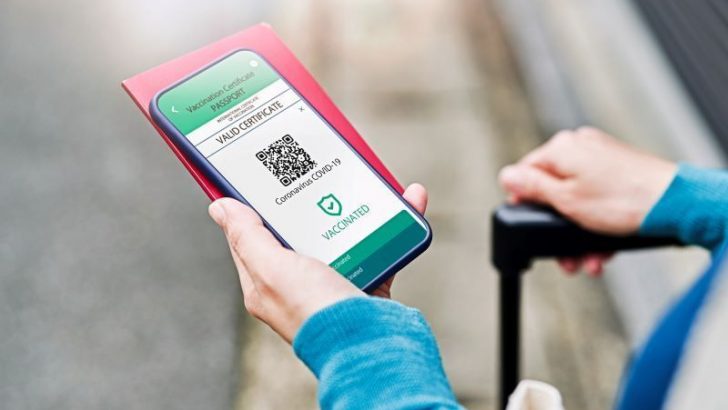Churches must seek to reduce social distancing requirement so that public worship can return to normal as soon as possible, writes David Quinn
Public worship was permitted again in Ireland in May. Nowhere else in Europe had stopped people from gathering together for religious worship for so long.
But now, as we face into August, numbers who can go to Mass still face severe limits. The social distancing requirement of two metres remains. In the case of the Mass I normally go to, for example, this has halved the number who were attending pre-pandemic. No more can be accommodated under the current rules.
There is no real hint at present of when the two metre rule might be changed. Will it be reduced to 1.5 metres, or one metre over the next few weeks?
The rise of the Delta variant seems to have put paid to any such prospect for the time being. As we know, the Delta variant is far more transmissible than the original version of Covid-19.
On the other hand, the vast majority of Mass-goers are double vaccinated by now. As at the time of writing, 68% of the adult population has received both jabs and the percentage is much higher among the older age groups that mostly comprise Mass-goers.
Religious gatherings
In other words, Mass-goers are about as safe as they are ever going to be short of Covid-19 disappearing from the face of the earth, which may never happen. Therefore, Church authorities will have to approach the Government soon, if they have not already done so, to discuss the social distancing requirements at Mass and other religious gatherings such as First Holy Communion and Confirmation.
This raises the terrible prospect that NPHET may recommend that parishes require people to show their vaccine passports before they enter places of worship as the ‘price’ of reducing social distancing at Masses below 2-metres never mind eliminating it entirely.
After all, this is now the rule in restaurants and bars for anyone over the age of 18. Restaurateurs and publicans may not like it, but before anyone can enter their premises, they must show their vaccine passport and photo identification.
The Church will rightly baulk at anything similar and for two reasons. First, there is the practical aspect. Imagine how long it would take to file into Mass if volunteers at the door had to check to see if people’s documentation was in order.
On its own, this would make any such suggestion a non-starter.
But NPHET, recognising this, may then not agree to the two metre rule being changed, or if they did, they might not reduce it below one metre. Do we then face the prospect of an indefinite delay in the restoration of full normality at Mass? Will parishes at Christmas still have to impose limits on the numbers who can crowd in for Christmas services this coming December?
The Church of England has considered the matter of vaccine passports”
The second objection to a vaccine passport requirement would be moral. For the first time ever, the Church would be turning away from Mass people who decided for one reason or another that they could not receive a vaccine. Some individuals may have judged for themselves they could not receive any of the vaccines because of their very remote connection to an abortion that took place in the 1970s, even though the Church has said repeatedly that this does not affect the moral licitness of the vaccines.
The Church of England has considered the matter of vaccine passports. It says on its website: “The Church has adopted a clear policy of encouraging people to be vaccinated, but, other than in very exceptional circumstances, it would be difficult for it to justify limiting access to church services or organisations on the basis of vaccine passports. Such an approach would run contrary to the principle of the Church being a home and a refuge for all.”
It does not say what those “exceptional circumstances” might be. It would be better if it categorically ruled out vaccine passports, but at least it has a public position of some sort.
In April, over 1,200 religious leaders from across England signed a statement objecting to vaccine passports in any setting, church or otherwise. They said a passport requirement would lead to a “two-tier” society and the creation of a “surveillance State”.
They said that regardless of any position the British Government adopted, they would never agree to asking for a vaccine passport as a condition of entering a church.
Assuming Church leaders in Ireland are opposed to vaccine passports, what should be their position with regard to social distancing going forward?
They need to be conscious of the fact that many older people are still very nervous about Covid-19 even though they are fully vaccinated. They might be reluctant to attend Mass if the social distancing requirement is totally eliminated in the months ahead, and especially next Winter if cases start increasing again, as they well might.
Perhaps a compromise in the meantime is to ask for the social distancing requirement to be reduced to one metre. NPHET and the Government are not likely to agree to this with the Delta variant on the increase, but come the autumn there will need to be some movement, especially as by then every adult willing to receive a vaccine will have both of their jabs. It so happens that Ireland has less vaccine hesitancy than practically any other country in Europe. Vaccine take-up has been huge.
If they are not already doing so, bishops need to discuss this vital matter among themselves and then approach the Government about the restrictions on the number who can attend Mass at any one time. The two metre rule must be reduced soon, with a view to a restoration of full normality in the months ahead.


 David Quinn
David Quinn
